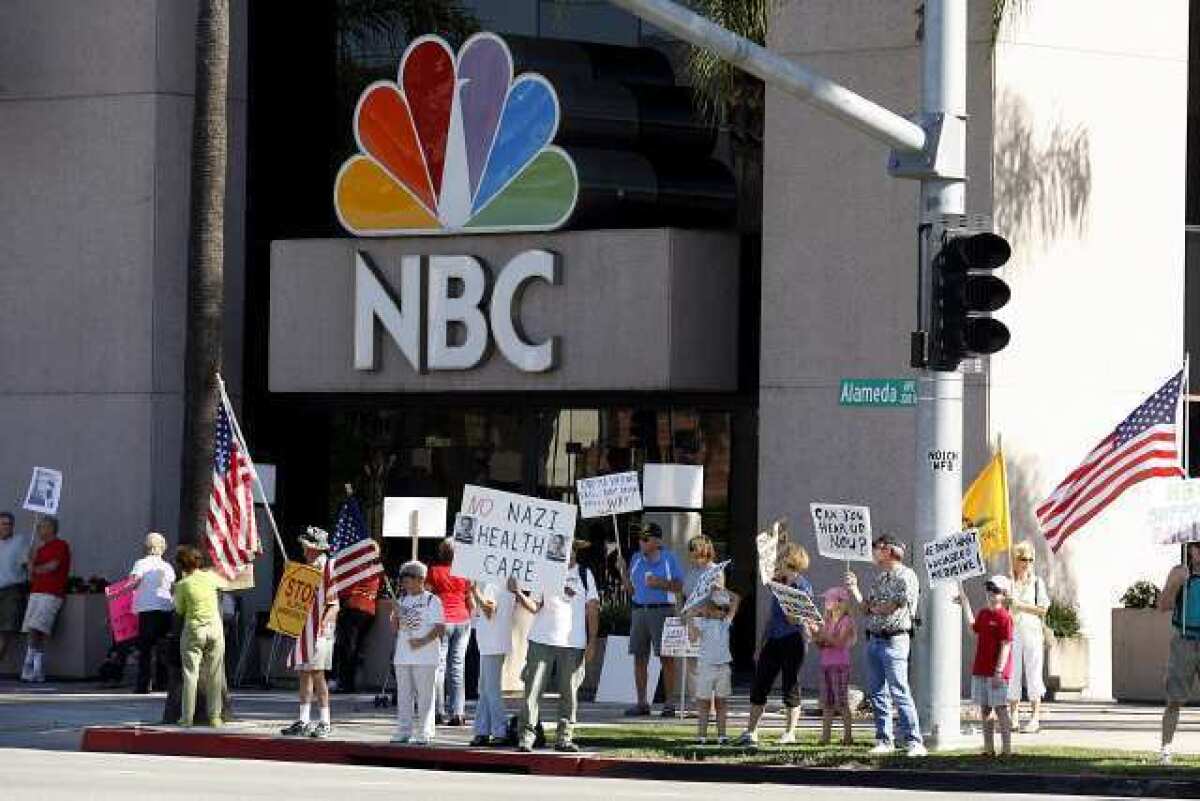NBC Universal calls ‘cut’ on housing plan

- Share via
NBC Universal’s announcement this week that it has dropped controversial plans to build thousands of residences on its famous back lot was praised by local and regional officials who feared the massive mixed-use project would overwhelm public facilities and pinch chances for movie and TV production job growth.
The new $1.6-billion proposal — which would ditch the housing for more movie and television production facilities and expand the Universal Studios Hollywood theme park — was unveiled Monday just before the release of the final environmental impact report on the company’s proposal to improve the sprawling studio and tourist attraction in the San Fernando Valley.
An earlier plan, valued at $3 billion, called for nearly 3,000 apartments and condominiums at the east end of the studio’s property; they would have been served by proposed shops and restaurants. Many neighbors were opposed to the housing, and this year Los Angeles County Supervisor Zev Yaroslavsky called on NBCUniversal to ditch the residential component of its “Evolution Plan.”
Housing development would have made economic sense for the company, Universal Studios President Ron Meyer said in a meeting with the Times on Monday. Yaroslavsky and Los Angeles City Councilman Tom LaBonge, however, “urged us to focus on our core business,” Meyer said, “and they are right.”
In a letter to top brass at NBCUniversal earlier this year, Yaroslavsky said the potential loss of production jobs “would be inconsistent with the best economic interests of your company and the Los Angeles area.”
Burbank Councilmember Emily Gabel-Luddy — who did not support the original housing plan — said Tuesday that she’s pleased the residential component was eliminated.
“It’s very constructive that they dropped all the housing,” said Gabel-Luddy, who previously served on the city’s Planning Board.
The project would have significantly increased traffic on surrounding streets in west Burbank, city officials said.
Concern about the project’s impact grew because Burbank contended that the studio’s traffic estimates in a draft environmental impact report were low.
City officials argued that the report used inaccurate assumptions, including one that projected roughly 20% of the new residents would use public transportation instead of driving their own vehicles.
Gabel-Luddy on Tuesday said she was also concerned that all the new condos and apartments would put increased demand on public safety and services, including the nearby Buena Vista Library.
“We thought our library would be overwhelmed,” she said.
But even with the housing component gone, Gabel-Luddy said she was worried the final environmental impact report may still undercount how much traffic will be generated, particularly given the plans for additional movie and television production facilities, which “would be completely consistent with their primary mission.”
The revised plan calls for $100 million in transit and roadway improvements as originally proposed, said Thomas Smith, senior vice president in charge of real estate on the West Coast for NBCUniversal.
The budget would include a new ramp and other improvements on the 101 Freeway.
About half the $100 million would be spent on improving traffic flow on nearby streets, intersections and freeways; the other half would be spent on transit programs, including shuttles, a Metro bus and employee and visitor incentives to forgo car trips.
Times Community News staff writer Mark Kellam contributed reporting.